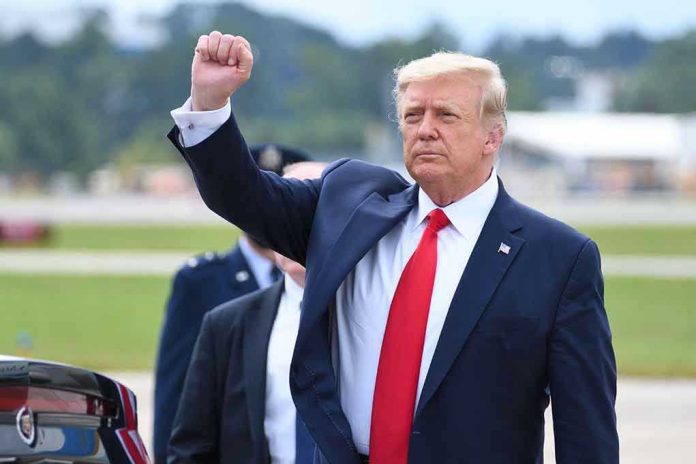🔴 Website 👉 https://u-s-news.com/
Telegram 👉 https://t.me/usnewscom_channel
A new accusation of media bias has emerged, with Joe Rogan and Adam Carolla claiming the BBC manipulated Trump’s January 6 speech, fueling debates on journalistic integrity.
Story Snapshot
- Joe Rogan and Adam Carolla criticized the BBC for editing Trump’s speech.
- The BBC allegedly omitted Trump’s call for peaceful protest.
- This has sparked debates over media ethics and bias.
- Trump has threatened a lawsuit against the BBC.
Rogan and Carolla’s Accusations Against the BBC
Joe Rogan and Adam Carolla have accused the BBC of deliberately editing Donald Trump’s January 6, 2021, speech in a recent documentary. They claim that the broadcaster omitted Trump’s explicit calls for peaceful protest, which were part of his original address. This omission, according to Rogan and Carolla, misrepresents Trump’s intent and contributes to a misleading narrative about his role in the Capitol riot.
The documentary aired in November 2025, and the criticism from these influential media figures has reignited debates on media ethics and bias. The BBC, known for its global reputation for impartiality, is now under scrutiny for its editorial choices. Rogan’s podcast, a highly influential platform, has amplified the conversation, drawing attention from both supporters and critics of Trump.
Trump’s Response and Legal Actions
In response to the allegations, Donald Trump has threatened to sue the BBC for up to $5 billion in damages, citing defamation and misrepresentation. His legal team has publicly stated their intent to pursue litigation unless the broadcaster issues a full retraction and correction. As of now, the BBC has reportedly apologized for any misunderstanding but has refused to pay compensation.
This legal threat underscores the potential financial and reputational risks facing the BBC. The controversy highlights the broader issue of media trust, particularly in the context of politically charged events like the January 6 riot. The BBC’s refusal to retract the documentary further fuels the debate over media accountability and transparency.
Implications for Media Trust and Public Perception
The ongoing controversy has significant implications for media trust and public perception. In the short term, it increases scrutiny of the BBC’s editorial practices and contributes to heightened polarization in media trust debates.
In the long term, it could lead to changes in documentary standards and further erosion of trust in legacy media. The influence of alternative media platforms like Rogan’s podcast is likely to grow as they continue to challenge traditional narratives.
As debates over media ethics and bias continue, the controversy serves as a reminder of the critical role that media outlets play in shaping public perception. It also highlights the importance of context and accuracy in reporting, especially in politically sensitive situations.
Sources:
